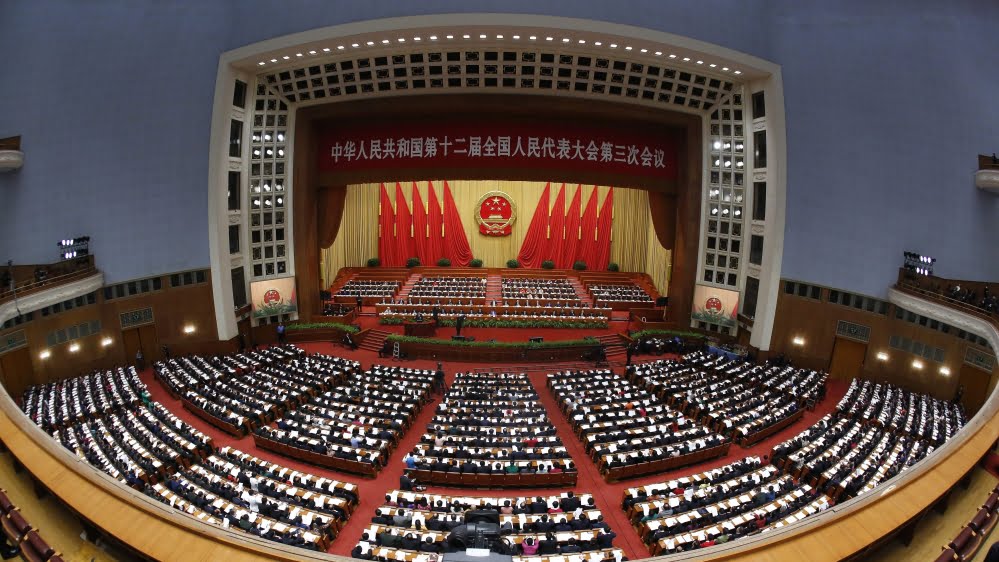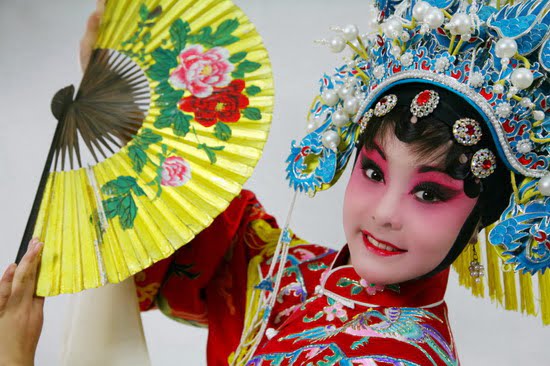Physical Address
304 North Cardinal St.
Dorchester Center, MA 02124
Physical Address
304 North Cardinal St.
Dorchester Center, MA 02124

Let’s discuss some emotional intelligence issues here! Are you ready? We are talking about Chinese Business etiquettes and taboos- A comprehensive Ethics Guide. This article will save you from lots of embarrassment, and we wrote the details based on over ten years of work experience with our staff. We covered the very subtle yet essential topics relating to business taboos in China and what you, as a business person or foreign expat, should avoid. Are you doing business in China or even considering expanding your business in the Chinese market? If your answer is yes, then keeping these tenets will do you so much good.
[quotes quotes_style=”bquotes” quotes_pos=”center”]”Any seasoned Global Executive or policy analyst will advise that Cultural Empathy is very relevant to breaking into international markets. China is one of the sensitive markets and Companies who ignored these issues paid dearly.[/quotes]
Term Definitions – Let’s take a few definitions of some business terms as they play a vital role in this piece
According to Hubspot, a Business protocol is the following of proper procedure and conduct in professional settings that foster relationship-building and collaboration, and the positive cultivation or you or your company’s professional brand and image.
I noticed Chron.com presented an excellent piece in this “Business etiquette provides a framework for building successful professional relationships and showcasing your professional presence.” Hubspot team also added that Business etiquette is a set of general guidelines for manners and behavior in a professional setting that allows professionals to feel comfortable and safe at work or in other professional environments.
The definition is self-explanatory I guess
Business taboos in this context are defined to be informal values, rules, and regulations that guide businesspeople in transactions. These could be known business regulations, ethics, cultural insights, and best practices. They are sometimes deduced or taken directly from formal business books but also do have cultural influence. It used to be an unwritten rule that you don’t discuss specific topics in business, or you don’t cross some lines. Those were generally politics, religion, and sexual orientation, but in China, there are extra dimensions.
So you suddenly find yourself exposed to China either doing business with Chinese or traveling. You should note that this requires you to learn particular and vital subsets of the country’s culture. The very Traditions, etiquettes, and values that shape Chinese business etiquette and customs are way different than those of the West; that’s why every expat needs to freshen up on them now and then. Why is this important? It is essential to understand Chinese business etiquette, rules, and taboos as it is critical, so you dont make mistakes by offending your Chinese business partners .

We have touched on several Chinese topics in the past, especially those that foreign business persons should never (ever!) forget. These are the concept of face, gift-giving, table manners, respect for hierarchy, and other valuable Chinese cultural insights. I encourage you to take a look and freshen your memory on them, and they will help you get a better understanding of the topics treated here. In November 2018, The world of luxury business woke up to a tense conversation about a blunder committed by the content team of Dolce & Gabbana (Get the Full story here as published by CNN). The effect? Thousands of good of the Italian luxury brand disappeared from major e-commerce platforms
The backlash against the Italian luxury fashion brand began earlier this week after it launched video ads featuring a Chinese woman struggling to eat pizza and other Italian food with chopsticks. The situation was then made worse by offensive comments that allegedly was sent from co-founder Stefano Gabbana’s personal Instagram account.
The advertisement and comments went viral on all Chinese social media platforms. The Chinese nationals leveled accusations of racism, bigotry, and calls for boycotts from celebrities. D&G had to abruptly end a prestigious fashion show in Shanghai just a few hours before its start.
Realizing the sharp furor, the company started a quick PR strategy to defuse the situation, but most branding experts say it will be difficult to regain the trust and recover from the damage
The indication here is that even the most loved luxury brands or prestigious fortune 500 companies will not be spared anytime they cross the cultural taboo lines. We, therefore, teach and orient our China Interns and students learning Chinese to be eager to be aware of these China business etiquettes because they are critical to succeed as an expat. It’s even more critical to business Executives leading the internationalization phase of any organization.
The conditions above does not mean, Chinese are not forgiving when it comes to observing their culture. Many of them will give you a pass when you miss elementary practices. I have made a few giving mistakes in the past, and it was ok!
When deciding to do business internationally, it’s always important to approach cautiously, especially if your brand is essential to your success. Host countries expect respect and appreciation for their existing rules and culture. I guess this is common sense 101, and its no secret. When you get careless with the values of the host country and disregard cultural empathy, you are doomed, and you should stay away. The ramifications are so painful that you may never recover. Chinese appreciate brands that respect them, and they are loyal
This is not the first time a global brand had to suffer massively due to carelessness around branding, strategy, and content. Although some companies may be working out ways to avoid this pitfall, we are likely to hear this news very often into the future
Chinese feel a sense of arrogance exhibited by western businesses, and they are always alert to point these disrespects toward their culture and nation. Hostile display of dislike for Chinese culture is seen as distasteful and arrogant.
Let’s start with the real deals! These are very consequential, and you must not skip them. We combed through some of the very sensitive Chinese topics that are taboo. We navigate the topics, such that its relevant to Travellers, Business Executives, Job seekers, companies and other foreigners living in China

We all have opinions because just as noses, everyone got a pair, but commenting on Chinese domestic politics could be a wrong move for a business person or a tourist. It’s not just because it’s a bad idea but also could get you into trouble. You may be arrested, detained, or even fined or banned from coming to China ever again. Corporations had tasted massive boycott because of this, and there is no exception.
We understand that giving your 2cent on political issues is just as safe in Europe America and other parts of the world, don’t try it in China. There are very safe ways to do this without getting into trouble but requires very skilled use of words.
Our Advice to you is never to try at all. Don’t ever talk about the independence of related Chinese states; it is sensitive. Simple conversations could be asking about previous presidents and their contributions and never level criticism of leadership, their decisions, or system of governance. Leave it to the system!
Marriott hotel wrongfully labels Chinese territories as independent countries! When this was revealed, the Chinese took to social media to demand an apology and immediate correction. The government came out strongly against it and indicated are not interested in foreign interference
Very recently you may have the heard about the story of NBA having issues with China because they decided to defend the Boss of Huston Rockets who had his say about questions issues regarding how China is handling the Hong Kong Riots
[quotes quotes_style=”bquotes” quotes_pos=”center”]
Conversation tips:
Climate and weather changes, travel itineraries and scenery, and food are all popular and safe topics to use while talking with Chinese people. Feel free to discuss latest Chinese achievements.
[/quotes]
It’s not funny when people try to reduce other’s culture to nonsense. This joke will fall flat in any situation, and China is no exception – don’t do it! It is rude and will earn you no trust. We all have those moments where we make fun of cultures across the globe, and I am not sure I want to give an example here but always make sure you reserve those for only your family conversations. Some Swedish brands were boycotted for a while after an incident involving the Swedish police throwing out Chinese Tourists from a hotel.
Soon after the matter was resolved, some media stations made fun of the entire scenario, and hell broke loose. This is an exceptional scenario because the act is not from the companies, but IKEA, Volvo, and others suffered
“ Very recently, the Great Albert Einstein’s Travel diary revealed some shocking and seemingly “xenophobic” accounts, but Chinese let go. In my opinion, aside from his significant contribution to the world, these comments came at a time when China was really in need, especially after the second world war. He was not attacked, and the issued died down soon after. Also, he is dead and gone, and there nothing left of him to blame. I also think Chinese like to tell the story of how they were once poor but now a force to reckon with

Think of this as a Chinese business etiquette rather than a taboo. Consider this as a guide rather than the scarier notion of hierarchy that might come as a more natural instinct. Per Chinese business protocol and ethics, people are expected to enter the meeting room in a hierarchical order. For example, the Chinese will assume that the first foreigner to enter the room is the head of the delegation. Only the senior members of your group are expected to lead the discussion. Interruptions of any kind from subordinates may be considered shocking by the Chinese.
As an Expat, keep an eye out for the lead speaker and address them as such. When in thought, ask! Keep the conversations going to the right quarters
As a business person, always make sure you avoid embarrassing your host or a Chinese. The face is an asset in China, and you will not get back the trust if your disgrace or cause them to lose confidence with others. Under no circumstance should you create the individual to lose face. Interpreted differently, this may mean avoiding open confrontations, criticism in the presence of subordinates, or any form of embarrassment. The body language cues are there to be observed.
Chinese to feel Chinese take saving face far more seriously than Westerners. This Chinese idiom defines it all: 先敬羅衣後敬人 (literal translation: first respect the good clothes and then respect the man) which is the equivalent of saying “good clothes open all doors”. Companies have face just as individuals do, and face often dictates the choices made in both interpersonal and business realms. By saving face, one is seeking respect.
Ignoring the face factor at your peril. There is no short cut around it, and there isn’t a second chance to make things right. Networking in China is essential to your success!
Gift-giving is tricky, according to Chinese business etiquette. There are taboo items you don’t give green hart, mirror, clocks etc Check this article for an in-depth insight for dos and don’ts of giving in China. Most Government officials do consider the giving of gifts to be bribery, which is not only regarded as unprofessional but is also illegal in some cases. However, in the business world, gift-giving policies are becoming more relaxed; as such, a gift can be welcomed as a sign of goodwill towards building a business relationship. Do some digging and find out if gifts would be appropriate or offensive to your particular Chinese counterparts before you make any purchases.
Out of the 1.4 billion population, China has over 800 Million in the middle-income bracket, and that’s a big deal! The essence of these figures always reminds corporations and international organizations on what they stand to benefit by staying clean in China. Most companies want to avoid getting entangled with the largest consumer market in the world and focus on penetration, branding, and sales. China is home to many Fortune 500 companies and also a destination most organizations will like to maximize.
Most luxury brands value Chinese consumers a great deal! They have become reach over the recent decade and have a voracious appetite for foreign products. As this is a two-way street, companies will benefit from maintaining consistent messaging and branding, respecting the Chinese systems while delivering value.
We analyzed Chinese business ethics with dos and don’ts (Business Taboos) not to say companies should kowtow to the people of China even if its against the values, but there are ways a win-win when there is harmony. Global markets could be homogenous but also differ in most areas. As a Business Executive, it is your responsibility to maintain balance.
There is also no single bulletproof concept to getting all these factors under control but constant goodwill to keep exploring deeper will make you an expert.

As a bonus, we have decided to add on top of the business ethics and taboos, some points to guide you when attending meetings in China. Meetings are essential in China and note these few tips
Body language skills are critical when dealing with Chinese people. Pick the non-verbal cues to understand the moment. Nodding, smiling, and handshakes are widespread practices. During professional Chinese business meetings. Handshakes are allowed but as a matter of principle, always wait for your Chinese host to initiate the process
Aside from “你好” (nǐ hǎo – hi, hello) and “很高兴认识你” (hěn gāoxìng rènshí nǐ – Nice to meet you), you can also say “幸会” (xìng huì; I’m charmed to meet you.) or “久仰” (jiǔyǎng; I`ve long been looking forward to meeting you), two proper expressions which will no doubt. Feel free to use a few Chinese words to express yourself and watch them admire you
You will like to address people properly in a manner that leaves you courteous without breaching the hierarchy code. Don’t forget to address people by their official titles and then their Family Name. This is a perfect practice and gives you the opportunity to easily related. See below examples from Dig Mandarin
王经理 (Wáng jīnglǐ; Manager Wang),
张教授 (Zhāng jiàoshòu; Prof. Zhang).
If you are not sure about the precise titles, you can also use 先生(xiānshēng; Sir, Mr.),小姐(xiǎojiě; miss) or 女士(nǚshì; madam) instead.
One way of keeping your name and details alive is to exchange business cards with Chinese. Though I can comfortably say that this practice is becoming old fashioned as Wechat is instead an efficient way to keep in touch. Right after greetings, you are allowed to exchange business cards. The way you accept the business card is essential! Business cards are seen as a representation of individual hens you need to treat it well. The best practice is to receive the business card with both hands, read the details on it before placing it into your wallet. There are several details which are vital on these cards and help you know ranks, titles, etc
Chinese see this as a rude gesture; that’s why it’s always great to greet Chinese, exchange complementary cards and keep their names. Alternatively, you may walk towards the person or try making eye contacts, and this surely will guarantee you have their attention without pointing fingers.
Chinese business meetings are frequent, and prolonged meetings are intended to help them know you before signing a contract – its also a trust-building opportunity. The sessions do not end in the board rooms but also extended to dinners and drinking spree. Chinese like to showcase their food culture, make sure you try everything and don’t ignore unless for health reasons.
One important thing to note in China is to remain true to yourself. They keep dining and winning with you because they want to know how you are and if they can tell you have a double personality, that’s a red flag! Being genuine, humble, and easy-going, You will carry favor.
After the meetings, the next is a long, winding dinner with your host. There is a preferred order in which guests and hosts must sit. At this point, if you are not sure, Please observe or wait till you are told to sit. You will see the senior businesspeople sitting first, and also an indication of who is the boss there.
First impressions they say are critical, and China business ethics requires that you appear decent. Do you want face? Look neat and appear well-groomed. Dressing conservatively but showing up in right clothes indicates both status and modesty.
Chinese enter dinning rooms in order of seniority. It is advisable that you demonstrate great respect to the leader of the Chinese Business Team. From your Team allow the top Executive to do the introductions. Wait for the Chinese to leave first and then follow them
During Chinese Business Dinners or banquettes, wait, observe before you act. This simple principle will save you all the time. Keep an eye on your host, and you will notice, the senior team starts eating first. When you finish your food, it is an indication you are hungry, and they will keep giving you more – keep the process slow
Chinese will struggle to pay bills whenever they are out to eat! Paying for the bill is always an honor. It is a face preservation strategy. Always offer to pay the bill, and if you are the one who invited the Chinese Business People, then make adequate preparations to make payment. If you have been invited, make sure you offer to pay all or part of the bill
Before I forget, always look around for public chopsticks on the table. At some dinners, there is a public chopstick provided. Always use public Chop sticks to pick food into your plate rather than that which is entering your mouth. Don’t set your chopstick erect or vertical into your food is a sign of mourning and bad news. Don’t play your eating table or plat with a chopstick, and it’s a sign of uncourteousness
China is now very opened, and many of these things are changing with time. More Chinese travel abroad each year and are getting to understand other cultures as well, so some of these issues may be watered down when it comes to relevance. But also that does not mean foreign businesspeople should ignore it, the practice and expectations may vary, but its always good to show interest in other cultures because it earns us all goodwill.
